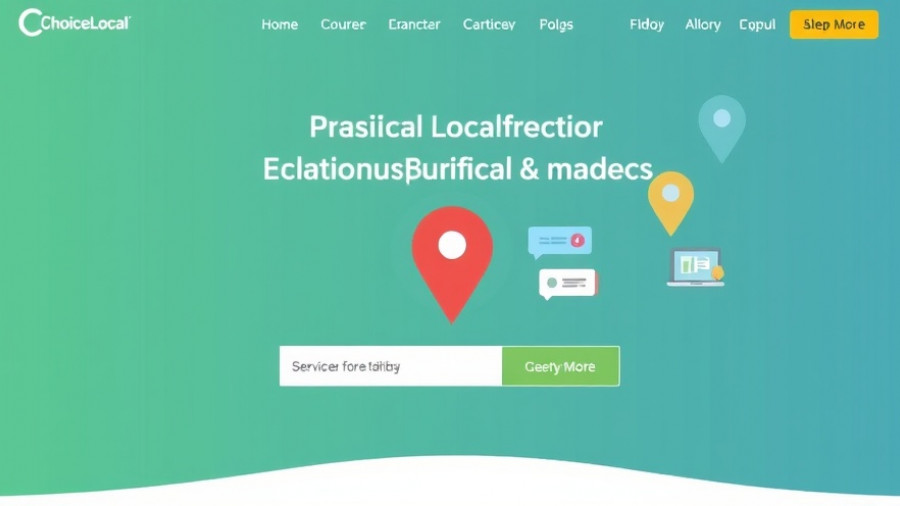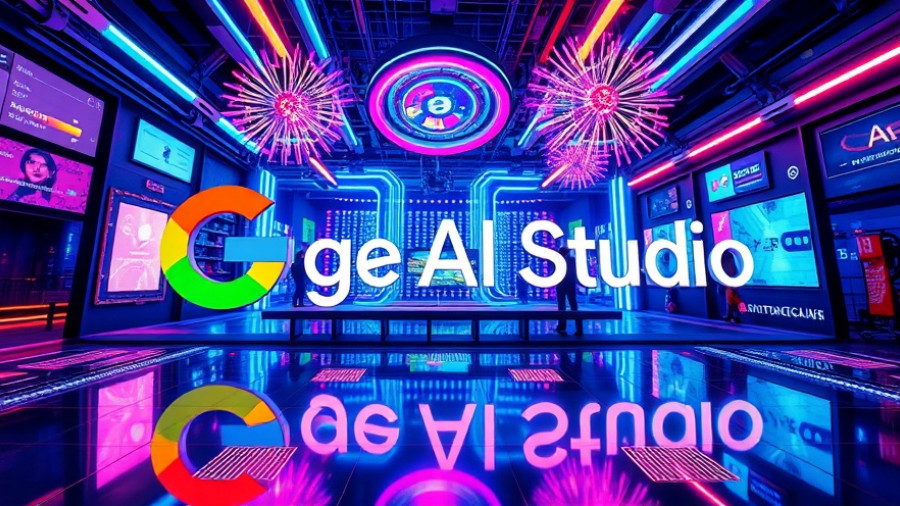
AI's Role in Reducing Marketing Waste
In today's fiercely competitive marketplace, businesses are grappling with the reality that over $60 billion annually in ad spending is wasted. The culprits? Underperforming campaigns that gobble up budgets without delivering results. This is where artificial intelligence (AI) steps in, transforming the landscape of marketing strategy and budget allocation. By harnessing AI agents, companies can not only identify these inefficiencies in real-time but also redirect their spending toward more profitable ventures, all while they sleep.
In AI Agents eliminate ad-waste, the video explores how artificial intelligence can revolutionize marketing efficiency, sparking deeper analysis on the topic.
Understanding Ad Waste
Ad waste refers to the money spent on marketing campaigns that do not yield a satisfactory return on investment (ROI). This often happens due to poor targeting, inadequate campaign management, or inconsistent messaging. Businesses endeavor to maximize their advertising efforts, but getting it right can be a daunting challenge. Enter AI—an innovative technology capable of analyzing vast data sets to pinpoint ineffective campaigns, providing marketers with insights that allow for smarter budget reallocations.
Automating Decisions with Advanced Technology
Major platforms like Google and Facebook offer tools designed to optimize ad performance. However, the true game-changer is combining these platforms with AI agents that operate autonomously. These AI systems analyze performance data at speeds human marketers can only dream of, allowing for real-time adjustments that enhance campaign efficiency. Imagine waking up to find that your ad spend has been realigned to funnel more resources into high-performing campaigns. That's not just a fantasy—it's a reality enabled by AI.
Parallel Examples in Marketing Automation
Consider the case of a medium-sized e-commerce retailer that traditionally struggled with ad performance. After integrating an AI-driven marketing approach, they reported a 30% increase in ROI within just three months. By automating campaign adjustments based on real-time analytics, they were able to streamline their budget toward ads that resonated with their audience, ultimately driving significant sales growth.
The Importance of AI in Marketing Strategy
AI is not just a buzzword; it represents a fundamental shift in marketing strategy development. As businesses face tightening budgets and heightened competition, leveraging AI tools enables them to stay agile, responsive, and efficient. Adopting data-driven marketing strategies not only improves campaign performance but also fosters customer loyalty through engaging content and personalized experiences.
Future Predictions: How AI Will Shape Marketing
As we move forward, we can expect AI's influence on marketing to grow exponentially. According to industry experts like Neil Patel, AI technologies will increasingly facilitate hyper-targeted marketing efforts. Businesses that stay ahead of the curve by embracing AI will likely lead the way in innovation and market share. This shift will redefine how we approach everything from customer journey mapping to analytics.
Actions Businesses Can Take Today
For professionals and business owners looking to capitalize on AI's capabilities, there are several actionable steps to consider. Start by conducting an SEO audit to analyze existing performance metrics. Invest in AI-powered tools that can automate campaign management and offer real-time insights. Additionally, continue to engage in research and training on digital skills, as the rapidly evolving marketing landscape will require continuous learning.
The Emotional Impact on Marketers
The thought of wasting a portion of the ad budget can be frustrating for any marketer, which is why the advent of AI brings a sense of relief. AI allows for the quick identification of underperforming elements within a marketing strategy, thus empowering marketers to make informed decisions that foster greater confidence in their campaigns.
Common Misconceptions About AI in Marketing
One prevalent misconception is that AI will replace marketers altogether. In reality, AI is a powerful ally that complements human expertise. While it can analyze data, humans are still essential for creative and strategic thinking, ensuring that campaigns resonate on an emotional level. The partnership between AI technologies and marketing professionals can lead to innovative strategies and improved effectiveness.
Conclusion: Embracing AI for Better Marketing Outcomes
As AI continues to evolve, its ability to eliminate ad waste and enhance marketing strategies is becoming increasingly apparent. For marketers and business owners, understanding and integrating these AI tools could be a pivotal factor in achieving successful campaigns moving forward. Take action today to harness the potential of AI, transforming your marketing practices into more efficient and effective strategies.
 Add Row
Add Row  Add
Add 




Write A Comment